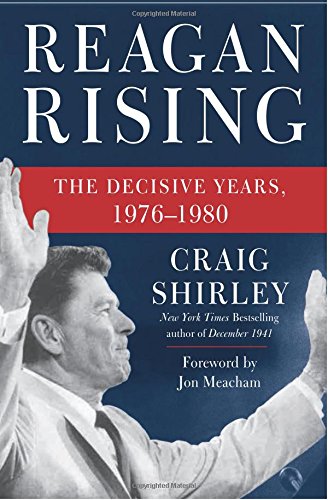

Most ebook files are in PDF format, so you can easily read them using various software such as Foxit Reader or directly on the Google Chrome browser.
Some ebook files are released by publishers in other formats such as .awz, .mobi, .epub, .fb2, etc. You may need to install specific software to read these formats on mobile/PC, such as Calibre.
Please read the tutorial at this link: https://ebookbell.com/faq
We offer FREE conversion to the popular formats you request; however, this may take some time. Therefore, right after payment, please email us, and we will try to provide the service as quickly as possible.
For some exceptional file formats or broken links (if any), please refrain from opening any disputes. Instead, email us first, and we will try to assist within a maximum of 6 hours.
EbookBell Team

4.3
68 reviewsWith a Foreword by Jon Meacham
New York Times bestselling biographer Craig Shirley charts Ronald Reagan’s astonishing rise from the ashes of his lost 1976 presidential bid to overwhelming victory in 1980. American conservatism—and the nation itself—would never be the same.
In 1976, when Ronald Reagan lost his second bid for the GOP presidential nomination (the first was in 1968), most observers believed his political career was over. Yet one year later, at the annual Conservative Political Action Conference, Reagan sounded like a new man. He introduced conservatives to a "New Republican Party"—one that looked beyond the traditional country club and corporate boardroom base to embrace "the man and woman in the factories . . . the farmer . . . the cop on the beat. Our party," Reagan said, "must be the party of the individual. It must not sell out the individual to cater to the group."
Reagan’s movement quickly spread, championed by emerging conservative leaders and influential think tanks. Meanwhile, for the first time in modern history, Reagan also began drawing young people to American conservatism.
But it was not only the former governor's political philosophy that was changing. A new man was emerging as well: The angry anticommunist was evolving into a more reflective, thoughtful, hopeful, and more spiritual leader. Championing the individual at home, rejecting containment and détente abroad, and advocating for the defeat of Soviet communism, his appeal crossed party lines.
At a time when conservatives are seeking to redefine their identity in light of the Donald Trump phenomenon, Reagan Rising offers insight into the development of Reagan’s optimistic and unifying philosophy, and offers lessons for both established Republican leaders as well as emerging hopefuls.